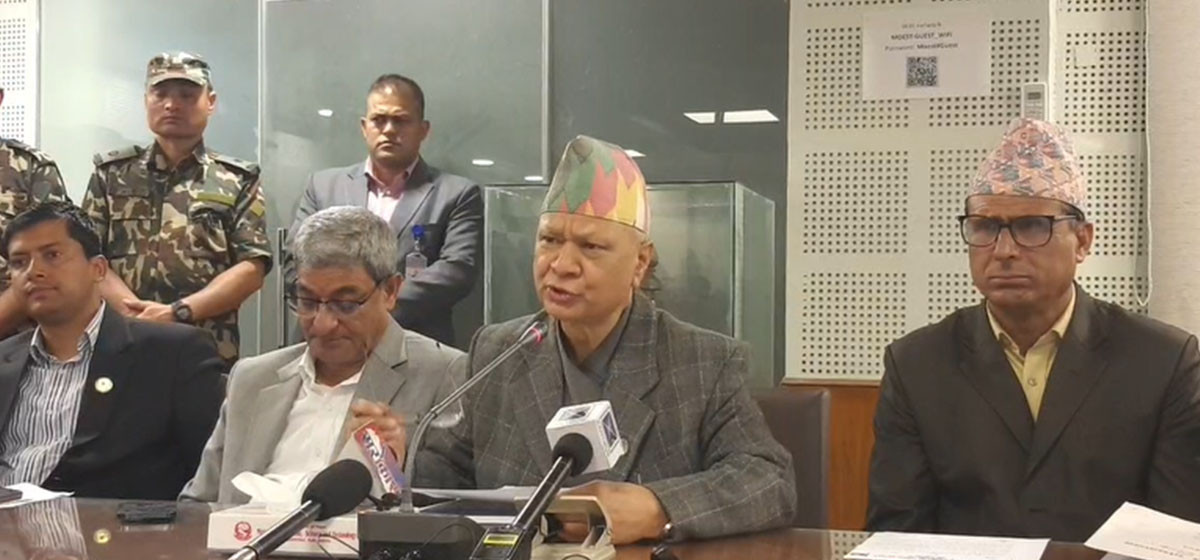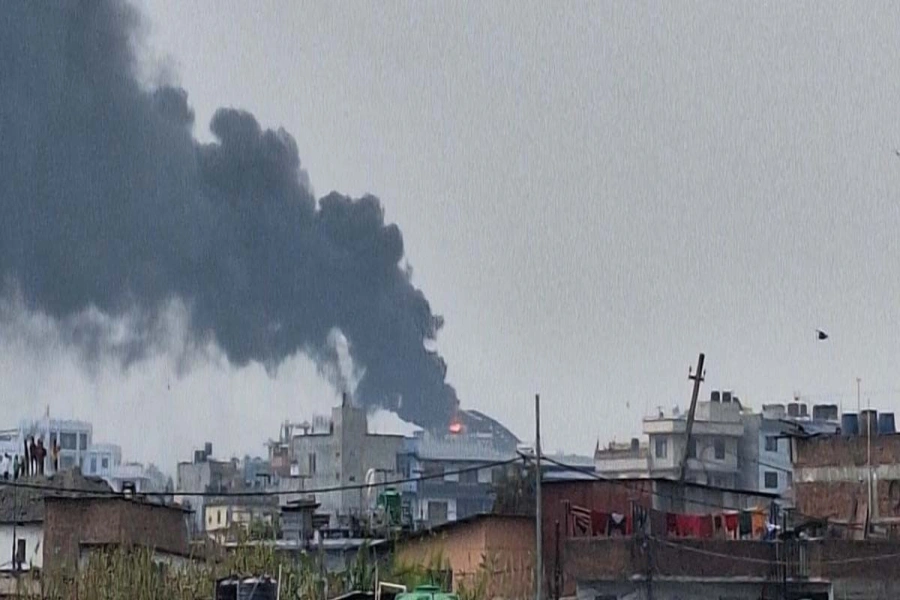KATHMANDU, June 14: The Nepal Teachers' Federation (NTF) has opened discussions with the Education Ministry, arguing that the parliamentary subcommittee's report on the School Education Bill 2080 BS, submitted to the Education, Health, and Technology Committee of the House of Representatives on May 18, contradicts the agreement it reached with teachers.
NTF Vice-Chair Nanumaya Parajuli said the government failed to fully address the federation's demands as outlined in the agreement. She noted that while the government and the federation reached an agreement, the subcommittee took the report in a completely different direction.
After a prolonged protest by teachers, the government addressed their immediate demands by reaching a nine-point agreement during the Cabinet meeting on April 30. In response, the Nepal Teachers' Federation withdrew all protest programs the same day.
One key agreement required the government to introduce the School Education Act by June 29. However, Federation Vice-Chair Nanumaya Parajuli stated that the government has shown no indication of fulfilling the teachers' demands.
According to the agreement, the government committed to making all temporary teachers permanent by including a provision in the School Education Act that would allocate 75 percent of vacancies for internal competition and 25 percent for open competition. However, the subcommittee submitted a report to the committee proposing a 60 percent internal and 40 percent open competition structure. The agreement also required the government to ensure that teachers receive promotions every 10 years.
Similarly, under another key agreement, the government had committed to converting Early Childhood Development (ECD) facilitators into permanent teaching positions and officially designating them as early childhood teachers. However, NTF Vice-Chair Nanumaya Parajuli accused the report of betraying this commitment.
School employees reject nine-point agreement between govt and t...

"We agreed to integrate early childhood education into the formal school structure and to replace the title of 'facilitator' with that of a teacher," Parajuli told Republica. "School staff and ECD teachers care for young children like mothers and actively lead teaching-learning activities, yet they receive very low monthly pay. Although the law sets Grade 12 as the minimum qualification, it fails to bring ECD teachers into the formal school structure."
She also rejected the provision in the bill that allows open competition for permanent positions without an age limit. "The agreement clearly stated that ECD teachers would receive appointments at the level equivalent to primary-level third-grade teachers, but the report completely ignored that," she said.
Similarly, NTF Vice-Chair Nanumaya Parajuli criticized the bill's proposal on periodic promotions, stating that it undermines teachers. "The bill betrays teachers on the issue of promotions," she said. "It demands that teachers work for 12 years and score 90 percent in the performance evaluation (Ka Sa Mu) to move from third to second class. To advance from second to first class, they must serve for 15 years and again score 90 percent in Ka Sa Mu. These provisions do not protect teachers' interests."
She pointed out that the Education Act of 2028 BS currently allows female teachers to transfer after six months of service and male teachers after one year. "But the bill submitted by the parliamentary subcommittee proposes five years of service for inter-municipality transfers and seven years for inter-province transfers," she said. "These proposals unfairly burden teachers."
Parajuli warned that the NTF will launch protests if the government fails to introduce the education act as agreed.
Tula Thapa, general secretary of the NTF, said the NTF will not accept the bill's proposal to let the provincial government appoint principals of public schools. The bill requires the commission to select principals for each school every academic session based on the number of vacancies, choosing qualified candidates according to the act.
The bill also proposes that permanent teachers working at the basic and secondary levels who meet the qualifications qualify for periodic promotions. The commission will select principals from among these permanent teachers through a competitive process based on their educational and administrative capabilities.
The report further states, "The commission will appoint principals for basic schools based on a district-level list and for secondary schools based on a provincial-level list."
The agreement sets a five-year term for principals' appointments.
General Secretary Thapa criticized the education bill presented by the subcommittee, saying it does not serve teachers' interests. "The government has failed to address any issues from the 2018 agreement with the federation, the 2023 agreement, or the agreements following the 2024 protests," he said. "Teachers reject the province's authority to appoint principals and manage transfers. After the protests, we repeatedly pressured the ministry to enforce the agreements, but they ignored us, which frustrated us."
He added that the NTF will determine its next steps in an internal meeting.
Ram Prasad Dhakal, Deputy General Secretary of the NTF, criticized the subcommittee's report for falsely presenting it as an agreement. He said the bill contains provisions that could cause teachers to lose their jobs, which the federation rejects. "The bill gives local governments the power to dismiss teachers from their profession, which harms teachers' interests. The federation strongly opposes this," Dhakal told Republica. "The NTF will never accept such a harmful bill."
He also criticized the bill for omitting the agreed provision to integrate Early Childhood Development (ECD) teachers into the school structure. "We agreed to incorporate ECD teachers and school staff into formal school positions," he said, expressing dissatisfaction.





-1200x560-1772467693.webp)































